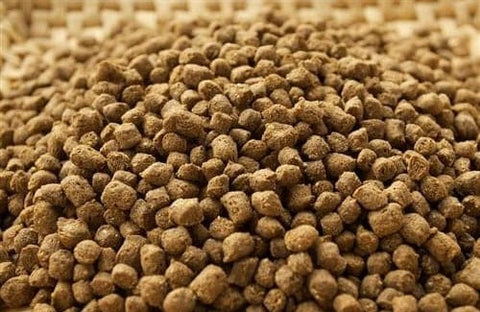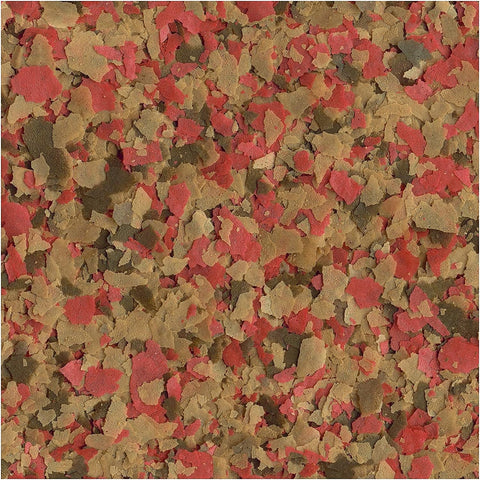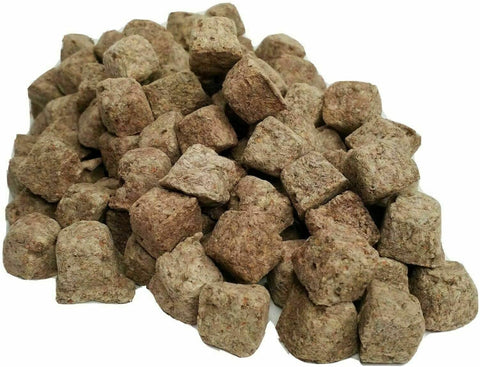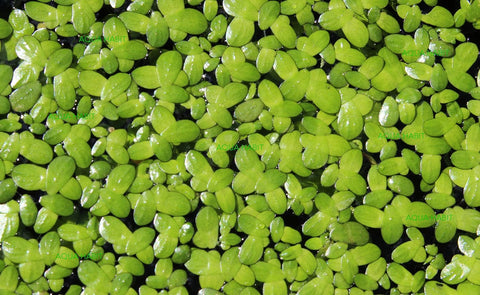Guide to the Best Fish Food in Aquaponics Systems
To ensure a healthy and thriving aquaponics system, choosing the right fish food is crucial. Fish food is the main source of nutrients for an aquaponics system. The quality of the fish food used affects the physical growth and development of fish and plants in the system.
This guide will discuss the dietary needs of fish, the key factors to remember when choosing fish food for your fish, and the different types of fish food available. We will provide recommendations for fish food brands that are available in the market. We will also share tips for feeding your fish and explain the importance of choosing the right fish food for a successful aquaponics system .

Nutritional Needs of Fish in Aquaponics Systems
Understanding the nutritional needs of fish in aquaponics systems and addressing factors influencing fish nutrition is crucial for maintaining healthy and thriving fish populations. Regular monitoring of fish behavior , water quality, and feeding practices can help prevent nutritional deficiencies and promote optimal fish growth and well-being. Below are the nutritional needs of fish in aquaponics systems.
- Protein: Fish requires protein for growth, reproduction, and overall health. The protein content in fish feed typically comes from sources like fish meal, soybean meal, or other plant and animal proteins.
- Lipids: Essential fatty acids are crucial for fish health, particularly for cell membrane structure, energy storage, and hormone regulation. Lipids in fish feed often come from fish oil, vegetable oils, or other lipid sources.
- Carbohydrates: While fish can derive energy from carbohydrates, they require less compared to other nutrients. Carbohydrates in fish feed may come from grains, cereals, or other plant-based sources.
- Vitamins and minerals: Fish need various vitamins and minerals for metabolic processes, immune function, and overall well-being. These include vitamins A, D, E, and B-complex vitamins, as well as minerals like calcium, phosphorus, and trace elements.
- Fiber: Fiber aids in digestion and helps maintain a healthy gut environment in fish. Some plant-based ingredients in fish feed provide fiber content.
Common Fish Deficiencies in Aquaponics Systems
- Protein Deficiency: Insufficient protein intake can result in stunted growth, reduced reproductive performance, and weakened immune function in fish.
- Lipid Deficiency: Lack of essential fatty acids may lead to poor growth, abnormal development, and increased susceptibility to diseases in fish.
- Vitamin and Mineral Deficiencies: Deficiencies in vitamins and minerals can cause various health problems, such as skeletal deformities, poor egg quality, and increased mortality rates in fish.
- Fiber Deficiency: Inadequate fiber intake can disrupt digestion and gut health, leading to issues like constipation, bloating, and reduced nutrient absorption in fish.
Types of Fish Food for Aquaponics Systems
A. Pelleted Fish Food
1. Composition and Benefits:
- Pelleted fish food typically consists of a mixture of ingredients such as fish meal, soybean meal, grains, vitamins, and minerals.
- These pellets are formulated to provide a balanced diet for fish, containing essential nutrients like protein, lipids, carbohydrates, vitamins, and minerals.
- Benefits include convenience, as pellets are easy to store, handle, and distribute evenly in the aquaponics system. They also reduce waste and water pollution compared to other forms of fish food.
2. Popular Brands and Products:
- Examples of popular brands include AquaNourish , AquaOrganic , Hikari , and Aqueon .
- Products may vary in ingredients, nutrient composition, and pellet size to suit different fish species and feeding preferences.
3. Considerations for Choosing Pelleted Fish Food:
- Consider the nutritional needs of the fish species in your aquaponics system and choose a pellet formula tailored to those requirements.
- Look for pellets with high-quality ingredients, balanced nutrient profiles, and minimal fillers or additives.
- Consider the size of the pellets relative to the size of your fish to ensure they can consume them easily.

B. Flake Fish Food
1. Composition and Benefits:
- Flake fish food consists of small, thin flakes made from ingredients like fish meal, shrimp meal, algae, and vitamins.
- Flakes are designed to float on the water's surface, making them easily accessible to fish swimming near the surface.
- Benefits include versatility, as flakes can be crumbled into smaller pieces for smaller fish or mixed with other foods for variety.
2. Popular Brands and Products:
- Common brands offering flake fish food include Tetra , API , and Omega One .
- Products may vary in ingredients, nutrient content, and flake size to accommodate different fish species and feeding habits.
3. Considerations for Choosing Flake Fish Food:
- Consider the feeding behavior of your fish species, as flake food is best suited for fish that feed near the water's surface.
- Look for flakes with a balanced nutrient profile and high-quality ingredients to meet the nutritional needs of your fish.
- Store flakes in a dry, cool place to maintain freshness and prevent spoilage.

C. Freeze-Dried and Freeze-Fried Fish Food:
1. Composition and Benefits:
- Freeze-dried and freeze-fried fish food consists of natural or processed ingredients that have been frozen and then dehydrated to remove moisture.
- Common ingredients include bloodworms, brine shrimp, krill, and tubifex worms.
- Benefits include long shelf life, convenience, and preservation of nutrients and natural flavors.
2. Popular Brands and Products:
- Brands offering freeze-dried and freeze-fried fish food include Omega One , Hikari , San Francisco Bay Brand , and Tetra .
- Products may vary in the types of organisms used and their nutrient profiles.
3. Considerations for Choosing Freeze-Dried and Freeze-Fried Fish Food:
- Consider the dietary preferences and nutritional needs of your fish species when selecting freeze-dried or freeze-fried foods.
- Look for products free from additives, preservatives, and contaminants.
- Soak freeze-dried foods in water before feeding to rehydrate them and prevent digestive issues in fish.

D. Live Fish Food:
1. Types of Live Fish Food:
- Common live fish foods include brine shrimp, daphnia, bloodworms, earthworms , and feeder fish like guppies or goldfish.
- Some aquaponics enthusiasts also culture live foods like duckweed or water lettuce to supplement fish diets.
2. Benefits and Considerations:
- Live fish food offers high nutritional value, as it provides essential nutrients in their natural form.
- Live foods can stimulate natural hunting behaviors in fish and provide enrichment.
- However, live foods require careful management to prevent overfeeding, disease transmission, and water quality issues.
3. Precautions and Potential Risks:
- Avoid feeding live feeder fish like goldfish or guppies exclusively, as they may carry parasites or diseases harmful to your aquaponics system.
- Culture live foods in a separate tank or container to prevent contamination of the main system.
- Practice moderation when feeding live foods to prevent overstocking and excess nutrient input in the aquaponics system.

Factors to Consider When Choosing Fish Food
1. Fish Species:
- Different species of fish have specific dietary requirements based on their natural habitat, physiology, and feeding behavior.
- Research the preferred diet of the fish species in your aquaponics system to ensure you select appropriate fish food.
- Some species are herbivorous, requiring plant-based diets, while others are carnivorous or omnivorous, necessitating protein-rich foods.
2. Growth Stage:
- The nutritional needs of fish vary depending on their life stage, including fry, juveniles, and adults.
- Young fish typically have higher protein requirements for growth and development, while adult fish may require different nutrient ratios for maintenance and reproduction.
- Choose fish food formulations tailored to the specific growth stage of your fish to promote optimal health and growth.
3. Water Temperature and pH:
- Water temperature and pH can influence fish metabolism, digestion, and nutrient absorption.
- Select fish food that is suitable for the prevailing water temperature and pH range in your aquaponics system.
- Some fish foods may be formulated specifically for cold-water or tropical species, so consider the climate conditions of your region.
4. Nutrient Balance:
- A balanced diet is essential to meet the nutritional needs of fish and support their overall health and well-being.
- Look for fish food formulations that provide a balanced combination of protein, lipids, carbohydrates, vitamins, and minerals.
- Avoid excessive supplementation of any single nutrient, as imbalances can lead to health issues or nutrient wastage in the aquaponics system.
5. Cost and Availability:
- Consider the cost-effectiveness and availability of fish food options based on your budget and location.
- Some specialized or premium fish foods may be more expensive but offer higher quality ingredients and nutritional value.
- Evaluate the availability of fish food brands and products in your area to ensure consistent supply for your aquaponics system.
- Explore local or sustainable alternatives to imported fish foods to reduce costs and environmental impact.
Tips for Feeding Fish in Aquaponics Systems
1. Frequency of Feeding:
- Establish a regular feeding schedule for your fish based on their nutritional needs and feeding habits.
- Feed smaller amounts multiple times a day rather than a large quantity once a day to prevent overfeeding and waste.
- Monitor fish behavior and adjust feeding frequency as needed, especially during periods of increased growth or temperature fluctuations.
2. Monitoring Fish Behavior and Health:
- Observe fish behavior during feeding times to ensure all fish are actively consuming food.
- Look for signs of distress, such as lethargy, loss of appetite, or abnormal swimming patterns, which may indicate health issues or stress.
- Regularly check for physical abnormalities, parasites, or injuries on fish to promptly address any health concerns.
3. Adjusting Feeding According to System Conditions:
- Consider factors like water temperature, pH levels, stocking density, and fish growth rates when determining feeding amounts.
- Adjust feeding quantities during seasonal changes or fluctuations in water quality to accommodate fish metabolism and nutrient requirements.
- Monitor water parameters regularly to ensure optimal conditions for fish health and adjust feeding practices accordingly.
4. Avoiding Overfeeding and Waste:
- Feed only what the fish can consume within a few minutes to prevent leftover food from accumulating in the aquaponics system.
- Monitor fish feeding behavior and adjust feeding amounts accordingly to avoid overfeeding.
- Use sinking pellets or feeders to ensure bottom-dwelling fish have access to food without excess waste floating on the water's surface.
- Implement feeding techniques like hand feeding or targeted feeding areas to distribute food evenly and minimize competition among fish.
Conclusion
Determining the best fish food for your aquaponics fish involves considering various factors such as fish species, growth stage, water conditions, nutrient balance, cost, and availability. While commercial fish foods offer convenience and consistency, homemade options provide control over ingredients and customization. Ultimately, the best fish food for aquaponics will depend on the specific needs of your fish species, system setup, and personal preferences. By prioritizing nutrition, minimizing waste, and monitoring fish health, you can ensure a thriving aquaponics ecosystem. Experimentation, observation, and ongoing refinement of feeding practices will contribute to the long-term success and productivity of your aquaponics system.






